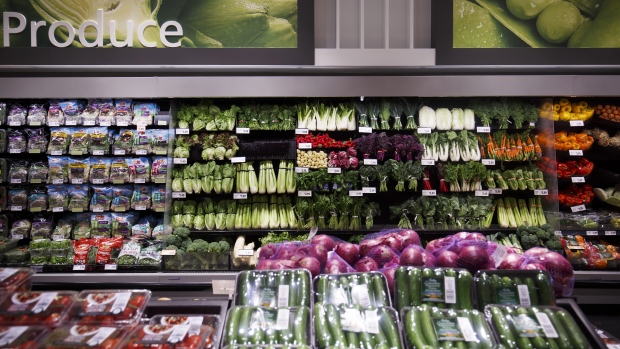Dec 21, 2018
Six ways to save money on groceries as prices rise in 2019

Food prices are going up in 2019, but that doesn’t mean you should skip the greens.
The cost of vegetables is going up by four to six per cent next year, according to a study co-authored by the University of Guelph and Dalhousie University. That’s the biggest projected price jump of all the food groups over the coming year.
“Fruits and vegetables are becoming more expensive … but they are still relatively cheap compared with most of our protein,” said Evan Fraser, director of the Arrell Food Institute at the University of Guelph in a phone interview with BNN Bloomberg. “We know that most Canadians probably eat more meat than is recommended and not enough fruits and vegetables.”
With that in mind, here are several ways you can stretch your vegetable budget in the New Year.
Reach for local storage crops
Crops that can be stored in a cool area like a cellar without going bad include cabbage, beets, root vegetables, carrots, onions, potatoes and squashes.
“These vegetables are grown locally all throughout Canada and can be kept in storage for long periods of time,” said Laura Wright, author of the vegan food blog The First Mess and a cookbook of the same name, in a phone interview with BNN Bloomberg. “And they are relatively cheap and nutritious, too.”
Waste not: Turn it into pickles, a sauce or soup instead
You can pretty much pickle any vegetable like cauliflower, peppers or beets if you throw them in a jar and add some vinegar.
“Making quick pickles takes a few minutes and can be stored in your fridge for a long time,” said Ian Brooks, CEO of Chefs Plate and HelloFresh Canada, in an email with BNN Bloomberg.
Don’t know what to do with that mostly-unused bunch of cilantro or parsley? Blitz them.
“A quick blender sauce like a chimichurri or pesto can turn any extra herbs into an easy sauce that adds tons of flavour to any dish,” said Brooks.
You can also throw past-their-prime produce into a soup.
“Vegetables that you may not want to eat fresh … might be perfectly acceptable to turn into a soup. So, you’ll make your food budget stretch considerably that way,” said Fraser.
Look for services that offer produce in bulk
Toronto-based FoodShare leverages its bulk-buying capacity to offer four varieties of its “Good Food Box,” which are filled with assorted vegetables at affordable price points. The boxes were created to help low-income Torontonians access healthy foods but are open to all residents in the city.
FoodShare will be offering the service online as of January 3 — so anyone in Toronto, from any income bracket, will be able order a Good Food Box and have it delivered to their door.
“The more orders we get, the more we can keep prices down across the city,” said Paul Taylor, executive director of FoodShare Toronto, in a phone interview with BNN Bloomberg.
Don’t fear the freezer
“Some people are kind of ‘eh’ on frozen vegetables, but things like frozen greens like spinach or kale are a very good buy,” said Wright.
“You get quite a bit of greens in the package because they are partially cooked down before they’re frozen. Generally, it is cheaper than buying the giant plastic containers of spinach.”
You can also freeze your own veggies to increase their shelf life.
“An easy thing to do is freeze veggies while they are in season. It maximizes the flavour, and you can use them out of season,” said Brooks.
Look for discounted “imperfect” produce
Loblaw Companies Ltd. has a “no name naturally imperfect” line that consists of “fruits and vegetables that while smaller in size or slightly misshapen, still taste as great as regular produce varieties … [and] costs up to 30 per cent less than traditional produce options,” according to a press release.
“They have extended it to a line of frozen goods, too,” said Wright. “You can get a two-kilogram bag of frozen mangos for $12. It’s ridiculous.”
Introduce more pulses into your cooking
Legumes like lentils and chickpeas are abundantly produced in Canada and are cheap to buy, said Fraser.
“You can make a lentil curry dish [or] you can use a lot of wilty vegetables at the end of the week in a dal,” said Fraser. “You can cut back significantly on your waste and improve your overall nutrition at an affordable rate using that kind of recipe.”







